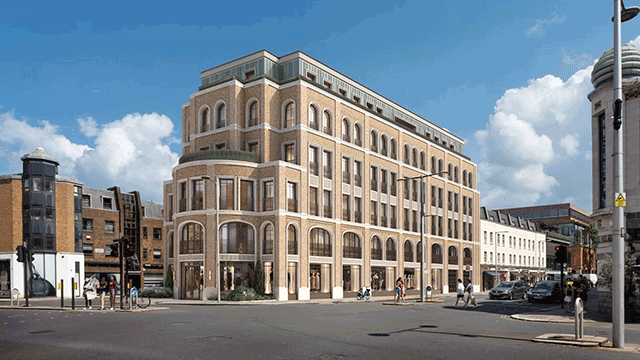Compulsory purchase – Adverse possession – Intention to possess – Compulsory purchase order in respect of land formerly occupied by water tower – Claimants seeking compensation on ground of possessory title to land between legs of tower – Whether sufficient acts of possession – Whether disclaimer of responsibility for water tower preventing any finding of intention to possess – Claim dismissed
By a compulsory purchase order (CPO) made in 2006, the defendant authority acquired an area of undeveloped land, adjoining a modern housing estate. They aimed to implement a planning permission for residential development on the land and on an area to the west that they already owned. The land within the CPO included an area formerly occupied by a water tower; it became vested in the defendants in 2007. The claimants owned a house on the edge of the housing estate, adjoining the water tower land. They asserted that they had acquired a possessory title to part of that land by adverse possession and that they were entitled to compensation, to be assessed as a share of the development value realisable by the implementation of the planning permission.
The compensation claim was referred to the Lands Tribunal, which determined a preliminary issue as to whether the claimants had established the claimed possessory title. The acts of adverse possession on which the claimants relied included the use of the land between the legs of the water tower from 1975 for keeping chickens and growing vegetables; they also made a vehicular access to it and parked a van and boat on it. However, in 1992, the claimants had conceded to the defendants that they had no claim to ownership of the land. That concession had been made in order to secure the cancellation of a notice that the defendants had served on them, under section 215 of the Town and Country Planning Act 1990, requiring the demolition of the water tower; such a notice had to be served on the owners and occupiers of the land in question. In 2000, the authority demolished the tower at the behest of the claimants.
Decision: The preliminary issue was determined in favour of the defendants; the reference was dismissed.
The claimants had not established that they had been in possession of the land for the necessary 12-year period. The evidence showed that they had kept chickens on the land, fenced in by wire netting, but it was inadequate to prove when the use had begun or how long it had continued. Further, although the claimants had created vehicular access to the land and had sometimes brought a van and a boat onto it, that use was no more than occasional.
The claimants, in using the land as they did, had lacked the necessary intention to possess it, but had merely made casual use of waste land. The land to which the claimants claimed possessory title did not consist only of the surface on which they kept their chickens but included the water tower, a massive structure that had formed part of the realty. There was nothing to indicate that the claimants had regarded themselves as possessing the water tower. They had, on the contrary, sought to disclaim the responsibility that would have fallen on the occupiers under the section 215 notice. On the evidence, the claimants’ interest was only in using parts of the surface of the land that were not occupied by the legs of the tower. They thus had no mind to possess or exercise control over the totality of the land that they now claimed to have acquired by adverse possession. Such a finding was fatal to that claim. Consequently, they had no interest in any of the land subject to the CPO and the vesting declaration.
That conclusion accorded with the overall merits of the case, since the claimants sought a share of the development value of the water tower site and the defendants’ land to the west, and that value had become realisable only through the demolition of the tower, which the claimants had been unwilling to do themselves.
Ian Howard, surveyor, appeared for the claimants with the permission of the Lands Tribunal; Lucinda Rowley, of Hewitsons LLP, of Cambridge, appeared for the defendants.
Sally Dobson, barrister










